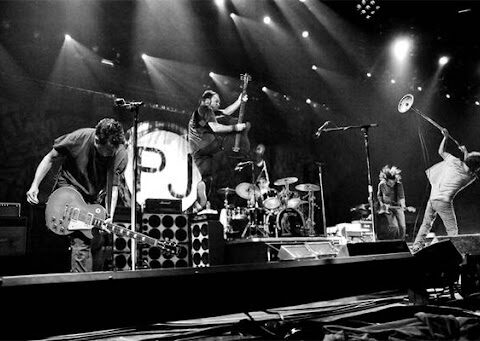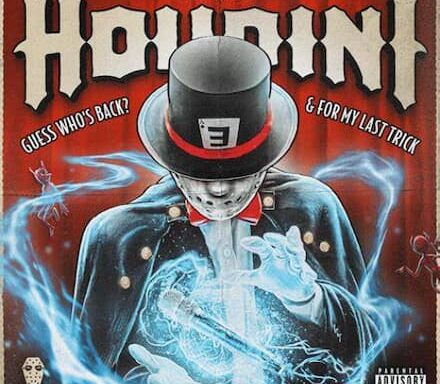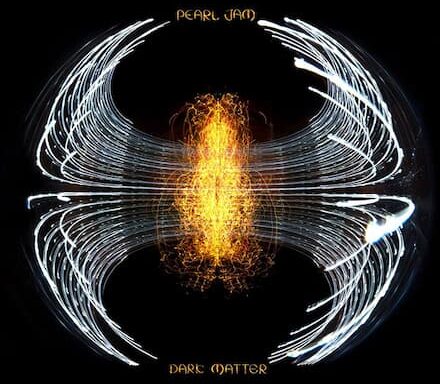I did whole, very long piece already on the Chris Cornell tribute event on Wednesday night, in which I covered mostly everything.
But I really wanted to create this space here to talk solely about the final performance of Soundgarden and about that utterly beautiful, incredibly powerful final act.
Because it was just extraordinary: and I get goosebumps every time I think about it. And I’ll probably get goosebumps every time I think about it for the rest of my life.
Again, the decision to save Soundgarden entirely for the finale was perfect. After all of this diversity of catalogue and performers across that night, we finish with almost an hour of one of the greatest acts in the history of recorded music: and what is, we have to assume, the last time these guys will ever play on a stage together.
Not only is this probably the last time those guys will ever perform Soundgarden material on a stage: it’s also the first time they’ve done so since that horrible night a year-and-a-half ago in Detroit.
The set that Soundgarden played (in which they were joined by various guests including Buzz Osbourne and Taylor Hawkins) was really well measured and selected, including what is honestly probably my all-time favorite song, ‘The Day I Tried to Live’.
‘Black Hole Sun’ (for which they were joined by Peter Frampton) was the final performance. But actually there was also the end of the end: for some nine minutes or so, there are no songs or structure, but Soundgarden – and Soundgarden alone now – remained on stage, creating what I can only describe as an otherworldly symphony of dissonance.
And this, for me, was the most powerful, poignant moment of the entire event. This – at the very end – is where things got transcendental.
It’s really hard to explain exactly what this was: it’s like a loosely coordinated symphony of electro magnetic feedback. Soundgarden commonly ended their shows like this – but there was something that felt very different this time, no doubt largely because of the occasion and the context.
But I really want to talk about this: and I don’t care if it makes me sound like a pretentious ass.
It is one of the most extraordinary, hautingly beautiful extensions of sound I have ever heard in my life. Somehow, in its apparent discordant nature it actually acquires a kind of transcendent poetry and beauty. It doesn’t even feel like music: it feels like some kind of natural (or supernatural) phenonemon caused by magnetic forces, like some sudden expression of emotion from the cosmos (the harmony of the spheres, maybe, or some kind of heavenly resonance frequency). It lingers and then mutates, changes shape, like a sonic equivalent of the Aurora Borealis, and it just keeping going, like some short-lived being playing out its existence.
It feels somehow mournful and life-affirming at the same time: but it is a mesmerising, even spiritual-feeling, experience.
And it is a sublime, stunning way to finish. I don’t think I’ve ever seen a finale to a show as hauntingly compelling as this anywhere.
I can’t really even tell precisely what mixture of sources is producing or sustaining the sounds (most of it is guitar/amp feedback, but bits of it feel like something more substantial or coordinated) – and I kind of don’t want to know. I kind of prefer to be mesmerised and just think it’s some kind of mysterious force of nature.
Like it might even be the cosmic force giving the occasion its own sonic contribution. That probably sounds stupid or hippy-dippy. But I’m talking about what that finale feels like or evokes.
And when Kim Thayil plugs in Cornell’s guitar to an amp and allows it to feedback and reverberate as part of the mutating soundscape, all thoughts or memories of the preceding five hours fade away and you’re just focused on that moment, that space and that sound.
And, moreoever, watching those men standing there for those minutes, sustaining this extraordinary sea, cloud or mist of beguiling sound is – presumably – both the final act of Soundgarden and their goodbye to the man who isn’t here anymore.
I just got goosebumps all over again, just from typing that sentence.
But I heard someone else describe the sight and sound of it as being like ancient warriors performing some mystic funerary rite to see off their fallen chief. That’s a really good description.
And if Chris Cornell’s spirit, consciousness or echo hadn’t been in or near the L.A Forum that night, you feel it certainly would’ve been drawn there at that point and to that sonic beacon for those last minutes.
Honestly, if the whole rest of the event had been poor or lackluster (and it wasn’t: most of it was really good), just this finale alone – just for this moment to exist – would’ve entirely justified everything else.
Those final minutes – as a final act of Soundgarden, and as a final, sonic goodbye to Chris Cornell – could not have been more powerful.
Man, I will always love Soundgarden. And I’ll always be grateful Chris Cornell existed in this world.
Read more: ‘Chris Cornell on Life, Music, the Dream World & Reality‘, ‘Did Soundgarden Make the Last Great Album in Rock?‘, ‘Nevermind the Bollocks: The REAL Legacy of Kurt Cobain & Nirvana‘, ‘Blind Melon’s SOUP: The Most Underrated Album of All Time‘, ‘Is ONE HOT MINUTE the Best Red Hot Chilli Peppers Album…?‘
–



